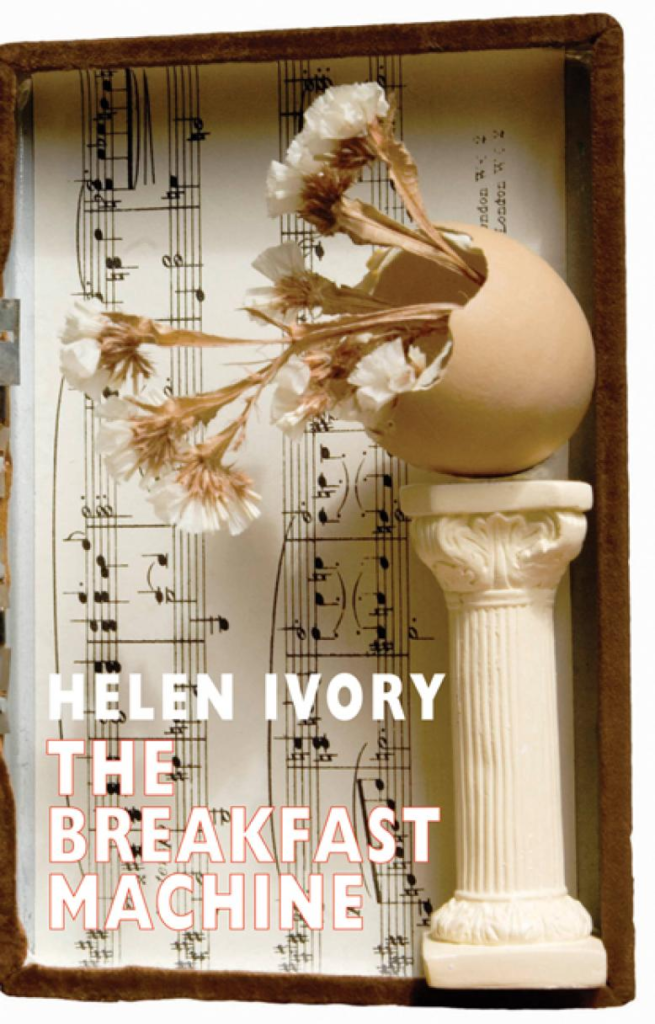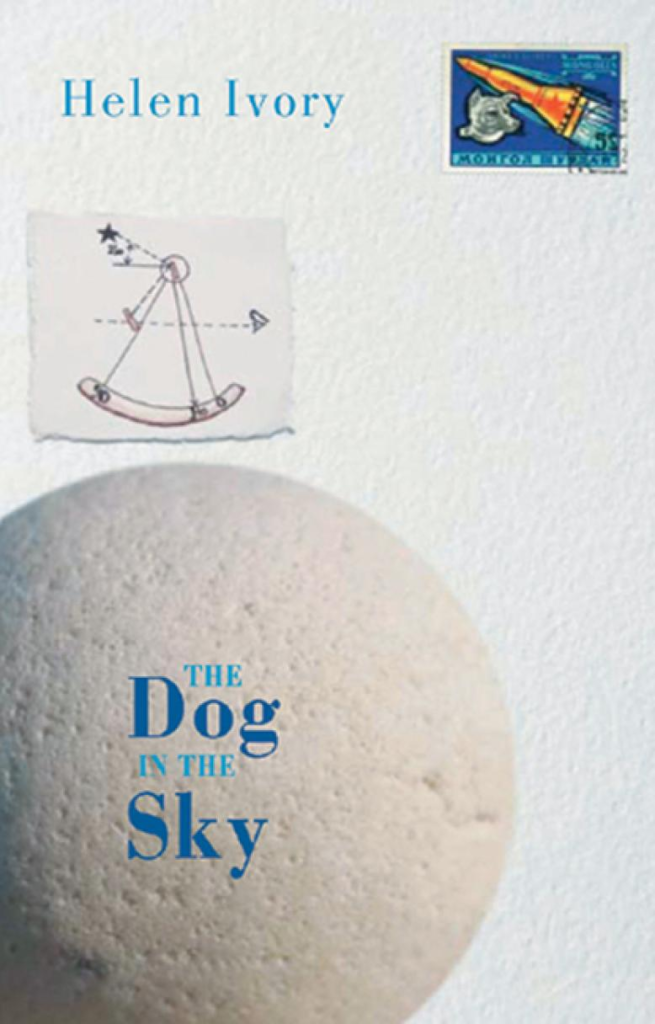Constructing a Witch
(Bloodaxe Books, October 2024)

Despite the Devil being conceived to direct human baseness away from our goodly selves, there has always been sin in the world. The Bible has it that woman is the weaker vessel, therefore her inferior ways could easily let the Devil into the house, and into her oh so corruptible body – and thus the story begins.
Helen Ivory’s sixth collection Constructing a Witch fixes on the monstering and the scapegoating of women and on the fear of ageing femininity. The witch appears as the barren, child-eating hag; she is a lustful seductress luring men to a path of corruption; she is a powerful or cantankerous woman whose cursing must be silenced by force.
These bewitching poems explore the witch archetype and the witch as human woman. They examine the nature of superstition and the necessity of magic and counter-magic to gain a fingerhold of agency, when life is chaotic and fragile. In the poems of Constructing a Witch Helen Ivory investigates witch tourism, the witch as outsider, cultural representations of the witch, female power and disempowerment, the menopause, and how the female body has been used and misunderstood for centuries.
With ten collages by Helen Ivory
This book can be ordered from the Bloodaxe site: www.bloodaxebooks
Signed copies can be ordered from our sum up shop: constructing-a-witch
And you can read about some of the research for Constructing a Witch here: https://helenivory.substack.com/
Wunderkammer: New and Selected Poems
(MadHat Press 2023)
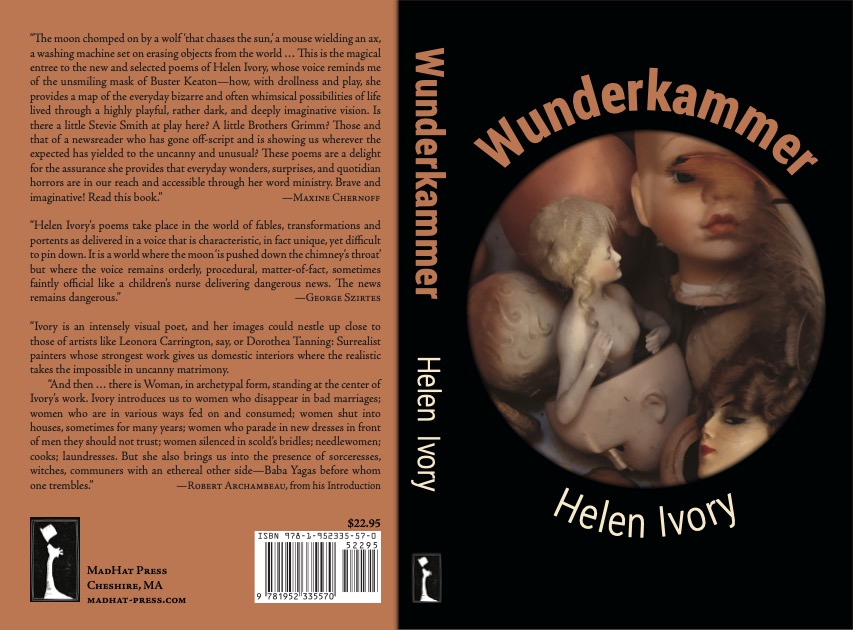
This book is a made up of selected poems from all of my books (listed below) , and includes images of some of my collages and assemblages. Here is the link on the MadHat website:madhat-press.com/products/wunderkammer
Here is a wonderful, comprehensive review written by the brilliant Norman Finkelstein www.poetryinreview.com/reviews/wunderkammer.html
Maps of the Abandoned City
(SurVision 2019)
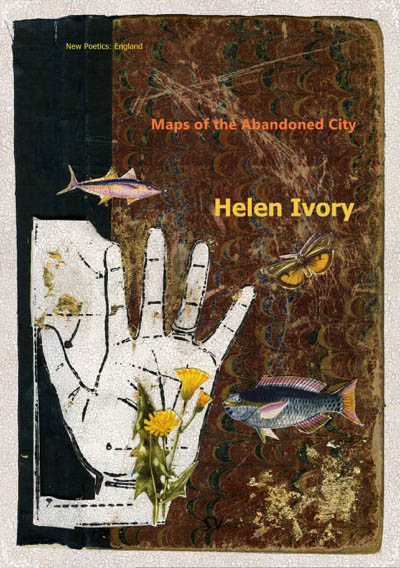
Maps of the Abandoned City imagines a place deserted by it’s makers. Mirrors are starved of human life, creatures cut loose and The Dark comes home and takes off its boots.
You can order a copy here: https://www.amazon.co.uk/Maps-Abandoned-City-Helen-Ivory/dp/1912963043
And read a review here on London Grip by the brilliant Rosie Jackson: london-grip-poetry-review-helen-ivory/
Here I am reading a few poems for Litbalm in the US: https://www.youtube.com/watch?v=UcX6cPvvDdE
The Anatomical Venus
(Bloodaxe 2019)
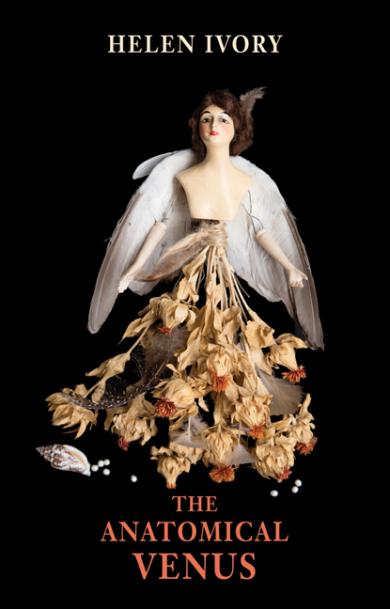
An Anatomical Venus – which gives this book its title – was an eighteenth-century anatomical wax sculpture of an idealised woman, a heady mix of eroticism, death and biological verisimilitude. Venus could be opened up and pulled apart by all the men who studied her. She would give up her secrets the first time of asking.
Helen Ivory’s fifth collection The Anatomical Venus examines how women have been portrayed as ‘other’; as witches; as hysterics with wandering wombs and as beautiful corpses cast in wax, or on mortuary slabs in TV box sets. A hanged woman addresses the author of the Malleus Maleficarum, a woman diagnosed with ‘Housewife Psychosis’ recounts her dreams to Freud, and a sex robot has the ear of her keeper. The Anatomical Venus imagines the lives of women sketched in asylum notes and pictures others shut inside cabinets of curiosity.
Copies can be ordered from here:www.bloodaxebooks.com
Waiting for Bluebeard
(Bloodaxe 2013)
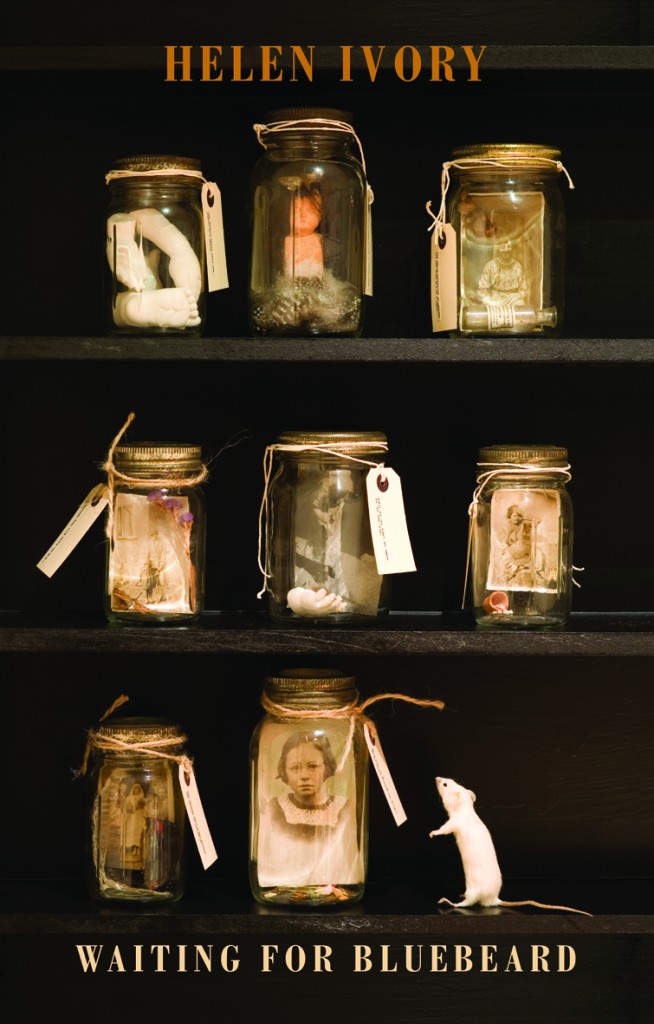
Waiting for Bluebeard tries to understand how a girl could grow up to be the woman living in Bluebeard’s house. The story begins with a part-remembered, part-imagined childhood, where seances are held, and a father drowns in oil beneath the skeleton of his car. When her childhood home coughs up birds in the parlour, the girl enters Bluebeard’s house paying the tariff of a single layer of skin. This is only the first stage of her disappearing, as she searches for a phantom child in a house where Bluebeard haunts the corridors like a sobbing wolf.
More here: www.bloodaxebooks.com
And here are my earlier Bloodaxe books
(I make the cover images for all of my books)
